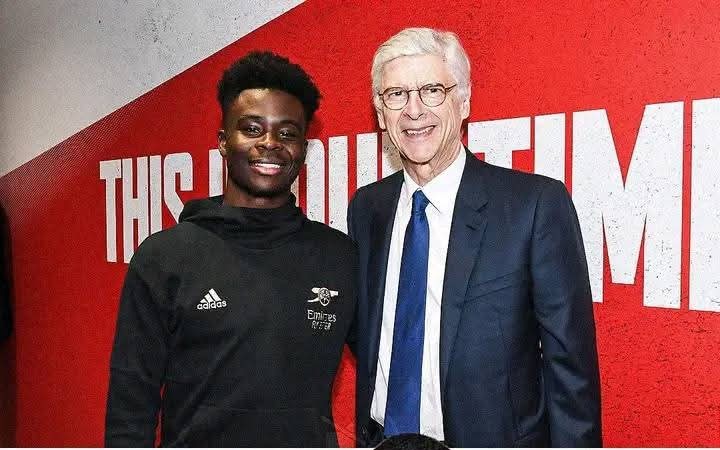The Emirates Stadium was filled with renewed optimism and nostalgia today as Arsène Wenger, Arsenal’s legendary former manager, returned to visit his cherished club.
His arrival comes at a crucial time, with the current squad showing great promise in their quest for Premier League and Champions League success.
Wenger’s presence served as a reminder of the club’s storied history and its potential for greatness.
Fans, players, and staff greeted Wenger with immense excitement, a testament to the lasting influence he has had on Arsenal.
During his extraordinary 22-year tenure, Wenger reshaped the club, making it a dominant force in football.
His return felt deeply symbolic—a reunion with the essence of Arsenal’s identity.
The purpose of Wenger’s visit extended beyond nostalgia.
He sought to inspire the current generation of players, offering words of wisdom drawn from years of experience at the top level.
Wenger emphasized the values that define champions: dedication, discipline, and an unwavering belief in their abilities.
His message resonated with the squad, particularly his emphasis on unity, teamwork, and playing with pride and passion.
Wenger reminded them of the unique relationship between Arsenal and its supporters, a connection that can drive the team to achieve extraordinary success.
For many of the current players, Wenger’s return was profoundly motivational.
Having grown up admiring him as a symbol of Arsenal’s golden era, they now had the chance to hear directly from him.
His insights into the modern game, combined with his strategic advice, offered invaluable lessons.
The training ground was alive with energy during Wenger’s visit.
His presence reinvigorated the players and staff, reminding them of the club’s heritage and the high standards associated with it.
Wenger’s influence was not limited to his tactical acumen; he is celebrated for fostering attacking football, nurturing young talent, and promoting a style of play marked by elegance and creativity.
These principles continue to shape Arsenal’s identity today.
Wenger’s return also gave Mikel Arteta, Arsenal’s current manager, an opportunity to connect with the club’s legacy.
Their exchange of ideas symbolized the blend of tradition and innovation necessary for
Arsenal to progress. The timing of Wenger’s visit, during a season filled with potential, was a timely morale boost for all involved.
His words will echo in the dressing room as Arsenal faces pivotal moments in their campaign.
Wenger’s visit was not merely a celebration of the past but a reminder of the club’s capacity to reclaim its place at the summit of football.
It was a day of inspiration, a call to embrace the dreams of Premier League and Champions League glory, and a testament to the enduring spirit of Arsenal.
